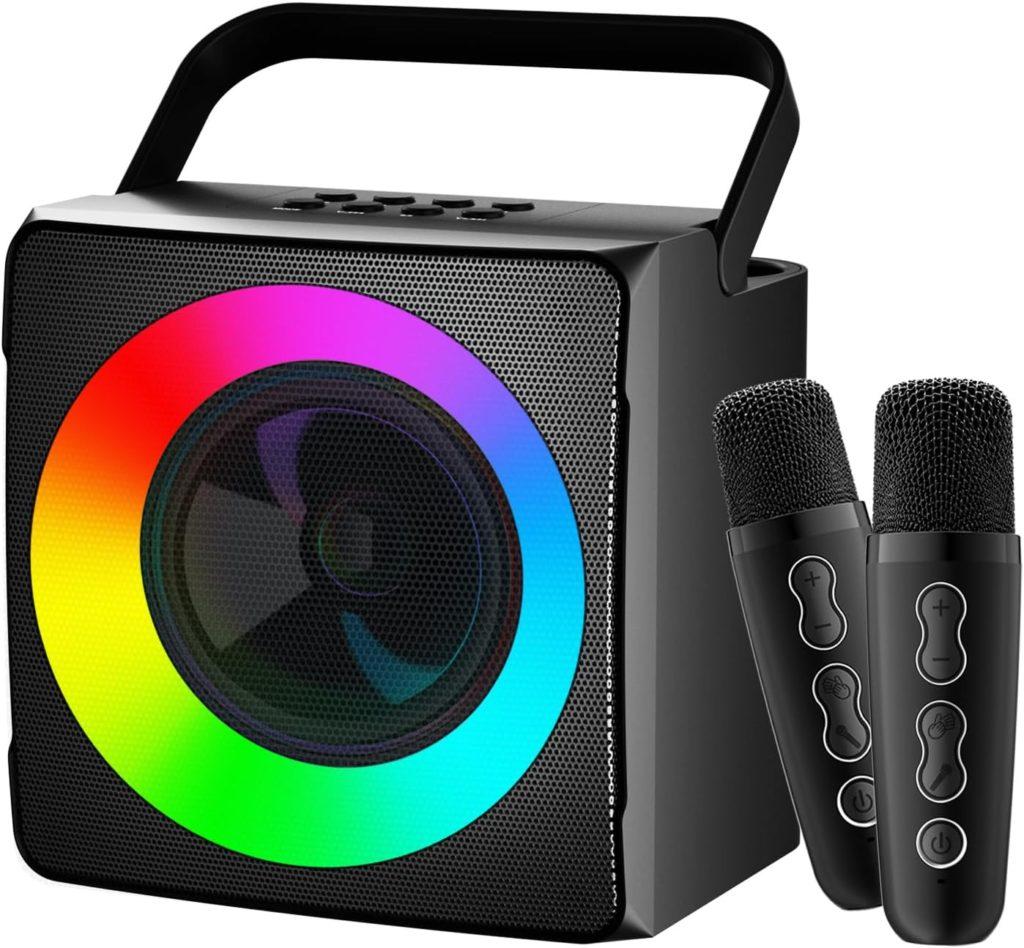
Listening to a talented singer can be an exciting experience. Powerful singing can evoke emotions and feelings that you never expected.
Every singer yearns to belt out lyrics with power and gusto to make their audience feel the music in their soul, but that’s something that even many experienced singers can’t pull off.
Many singers are born with their talent. They have an ear for music and can croon perfect notes without trying. Others build their talent with practice and experience. They learn from instructors, by mimicking others, and through good old trial and error.
We expect to be moved by famous operas and even the occasional pop radio tune, but the truth is that any singer can belt out something powerful enough to shake you to your core – any singer who knows the tricks, that is.
This guide explores a few tried-and-true tips, tricks, and musical hacks that help every type of singer amp up their power – and a few things singers aspiring to greatness should never do. Let’s take a look.
Power Singing Tips
The best tip for any singer who wants their voice to resonate with power is to practice. They don’t say “practice makes perfect” for nothing. That’s not the only step, however. Here are a few other things to keep in mind when practicing:
Pick an Energetic Song
Choosing an energetic song can help you sing with more power. Choose a song you’d dance to that gets your heart pumping and makes you smile. Those are the types of pieces that easily lend themselves to powerful voices.
Project to the Back
Practice in a large room as often as possible. Stand at one end and imagine that your voice must reach a person standing at the furthest end from where you’re standing. Focus on that imaginary person and sing to that area of the room. It can help to have a friend in that spot to tell you how you sound.
Push from Your Abdomen
Take a deep breath and notice if your chest or stomach rises first. Your stomach should rise first if you are breathing from your abdomen. Many singers forget this when singing powerful notes and instead take shallow in-and-out breaths from the chest.
Place your hands on your stomach while singing to remind you to push your breath out from the abdomen.
Warm Up
One essential characteristic of most great singers is appropriately warming the vocal cords. Warm-ups slowly stretch the voice and bring it to attention. The concept resembles how athletes stretch and warm up their bodies before performing.
Appropriately warming up strengthens multiple parts of the voice. Stretching the muscles helps both the chest and head voices. A warm voice makes transitioning between them sound effortlessly continuous.
Sirens, vowel sounds, and climbing the scales are all great warm-up exercises.
Stretch Your Singing Muscles
Part of warming up is stretching your face and neck muscles. Big smiles and gaping yawns help stretch out the muscles you are about to use while singing. It also helps to rotate your neck in slow circles for several minutes before reversing the direction.
Breath Control
Airflow is another essential part of singing with power, energy, and force. Breath supports the voice. Holding notes is part of performing, and learning to correctly implement diaphragm breathing during practice will support the voice sound and deliver a robust, unfluctuating tone.
Breathing properly can make or break a singer. It exposes the difference between a lovely, intense, full voice and one that isn’t.
Straw phonation is a creative way for singers to practice proper breathing. It entails trying to push a note or sound through a metal straw with your breath. You can hit, sustain, and deliver notes with little effort once you master this technique, and it gets easier the more you practice.
Hire a Voice Coach
Vocal coaches have extensive knowledge about vocal anatomy and the proper techniques to reach higher notes in your vocal register. They help address bad voice habits and improper training, including appropriate care for your voice, like taking vocal rests to prevent strain or damage.
Practice makes perfect, but remarkable singers don’t just practice singing. They also practice breathing, scales, stretches, and even diction. They also remember to avoid bad habits and activities dangerous for serious singers.
How Can You Help Protect Your Voice?
Singers must treat their voices well to avoid damaging the vocal cords that give them their distinctive sound. Here are a few things singers should do to keep their voices in top shape:
Avoid Alcohol
Alcohol in every form is dehydrating – the kiss of death for your vocal folds. Drinking warm water after alcohol can help rehydrate you, but it’s best to avoid alcohol entirely.
No Shouting and Whispering
Most people know that shouting can damage your voice, but so can whispering. Forcing air over the vocal folds can put them into trauma mode. So can clearing your throat and coughing.
No Smoking and Smoky Rooms
Cigarette smoke is filled with toxic chemicals. It’s harmful to everything it touches, including the delicate tissue of the vocal folds. Inhaling smoke is highly detrimental to your voice, esophagus, and lungs.
Watch Your Diet
The wrong foods or beverages can change the flexibility of your voice and even increase the risk of injury. Dairy products and fatty foods can cause a build-up of mucus in the throat, and any food or drink that is too cold or hot restricts the throat.
Being a great singer requires a lot more than practice and determination. You must also care for yourself and choose a healthy lifestyle to be the best singer possible.
Every singer would love to belt out a song so powerful that it brings the audience to tears. It is possible, but it takes a lot of hard work, determination, and drive to get to that place in your journey. You can start today.
Learning to Sing Your Heart Out Is Easier Than You Think
Voice lessons can turn a mediocre singer into a superior vocalist. Sloan School of Music provides lessons (private, group, virtual) in various musical disciplines. We sell top-of-the-line musical instruments and accessories, and we also offer instrument rental programs.
Contact Sloan School of Music for more information about musical instruments, accessories, lessons, and more.






